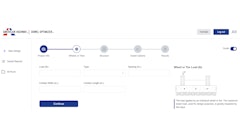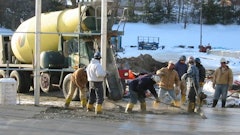U.S. refiners expect a strong summer asphalt season aided by lower production and more stable demand.
Calumet Specialty Products Partners plans to steadily increase its asphalt production and market reach as the company doubles its processing of West Canadian Select (WCS) heavy crude. Midcontinent and Rockies independent refiner HollyFrontier sees a shortage of supply for high-quality asphalt in markets served by its refineries. And recent state and federal road funding decisions will support asphalt demand, Delek US chief executive Uzi Yemin said during the latest quarterly earnings presentation.
"I believe this is going to be a very strong asphalt season," Yemin said.
High oil prices and strong margins for light, sweet crude helped trim Energy Information Administration-tracked US asphalt capacity by 16pc over the past five years. Actual production tracked by the agency fell well below the ten-year average in 2013 and only began to draw closer to those historic rates last year.
"The supply of high quality asphalt is not what it used to be," HollyFrontier chief executive George Damiris said on an earnings call.
Secondary products such as asphalt and petroleum coke can become afterthoughts for complex refiners when crude prices are high. While gasoline and distillates move more closely with volatile crude prices, asphalt and petroleum coke tend to stick in a lower range.
When heavy crudes become cheap, the comparatively stubborn pricing of secondary products improves their position. Prices for Mars, a benchmark US Gulf coast heavy crude, traded last week at roughly 40pc below the same week last year.
Petroleum coke has continued to struggle with the bearish prospects of its main competitor, thermal coal. But renewed investment in US infrastructure has rekindled asphalt demand.
Texas voters in November approved another $2.5bn in spending for state transportation road construction and repair in that state. And last fall's passage of the Fixing America's Surface Transportation Act provided five years of certainty for US road funding after years of stop-gap measures. The five-year program gives state transportation departments more confidence to plan and pursue road projects, the National Asphalt Pavement Association told Argus.
"With that funding certainty in place through 2020, there is great optimism about the short-term prospect for more paving projects," spokesman Carter Ross said.
Some companies expect to increase asphalt production, though not because they expect a long-term rise in demand. Calumet plans to bring WCS processing at its Billings, Montana, and Superior, Wisconsin, refineries to up to 45,000 b/d by the end of the year, and to up to 70,000 b/d in 2020. The northern refineries have easy access to the very heavy crude, which Calumet expects Canadian producers to ramp up output by 10pc over the next five years.
The crude slate shift will produce more asphalt than the company's current midcontinent and east coast markets can take. Calumet has looked west, signing a deal with US independent refiner and asphalt marketer Alon USA to sell Calumet production out of its system of southwestern terminals.
"I would also tell you that our asphalt business was very profitable in 2015, and all signs seem to indicate it will continue to be very profitable in 2016," chief executive Tim Go said in the most recent quarterly earnings call. "So we are looking forward to that summer season of asphalt."













![Fcp Racatac Chair 10893876[1]](https://img.forconstructionpros.com/mindful/acbm/workspaces/default/uploads/2025/10/fcp-racatac-chair-108938761.10l0At5WXv.png?ar=16%3A9&auto=format%2Ccompress&bg=fff&fill-color=fff&fit=fill&h=135&q=70&w=240)
